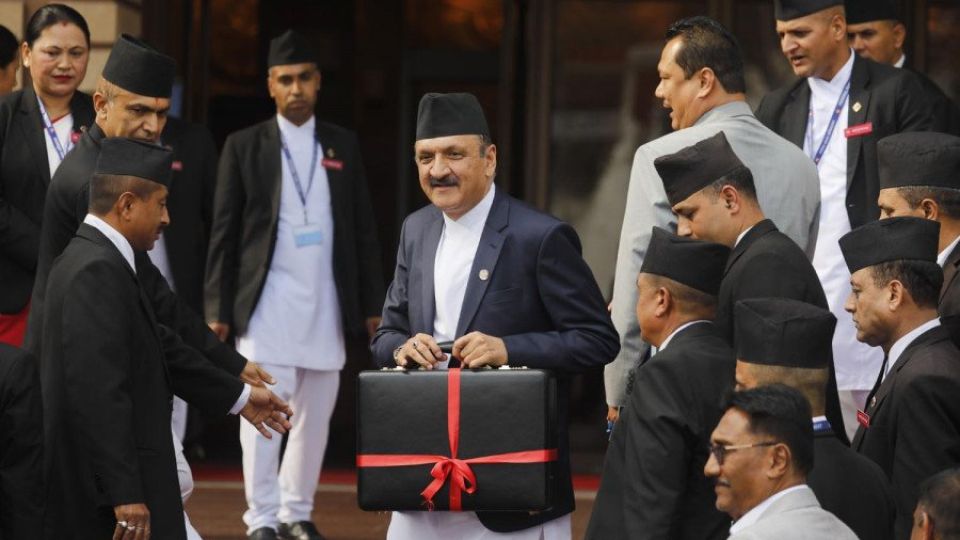May 31, 2023
KATHMANDU – The government had imposed a blanket ban on the import of some goods considered as luxurious items. The financial Act of the current fiscal year 2022-23 was introduced last May.
But the government corrected its approach by leaving certain taxes intact on goods and services considered to be luxury to discourage their imports and consumption.
The Financial Bill presented in Parliament by Finance Minister Prakash Sharan Mahat alongside the annual budget on Monday levied a 2 percent ‘luxury tax’ on all such goods and services.
They include services provided by five star or above hotels and resorts; imported liquor; diamond; pearls and precious stone embedded with gold and jewelry worth more than Rs 1 million.
“The high-end hotels and resorts should charge luxury taxes during the time of service delivery,” the Financial Bill stated. “The tax on imported liquor should be levied at the customs points and luxury tax on precious metals should be levied during their sales.”
Luxury taxes collected should be submitted to the tax office by the 25th day of the next month. “Otherwise, the tax office will impose an interest of 15 percent to recover the tax,” the Financial Bill says.
Packages for foreign visits by Nepalis will also be expensive as the financial bill has made a provision that Nepalis going abroad for a visit will have to pay as much as 5 percent of the total payment they make as ‘tourist tax.’
“Sellers of the foreign tour package should charge such tax at the time when the package is sold,” the financial bill said. Companies that send local individuals to foreign lands for the promotion of goods and services also need to pay this tax. “But the payment should be made during the accounting process,” the financial bill added.
Migrant workers may have to pay more to go abroad with the government deciding to charge foreign employment service charges. According to the financial bill, companies facilitating the foreign employment need to pay 1 percent of the total fee they receive from migrant workers as foreign employment service charge.
The government has also hiked excise duty on beer and liquor. Excise duty on beer without alcohol has been fixed at Rs35 per litre from Rs30 per litre earlier, according to the financial bill. Excise duty on barley beer will be charged at Rs235 per litre from the existing Rs228 per litre.
Likewise, excise duty on liquor has also been increased. For example, excise duty on 15 UP liquor will have to be charged at Rs1,800 per litre from Rs1,750 per litre earlier.
According to the financial bill, people who are operating their mobile phones without registering, can register such mobile phones on the mobile device management system by paying certain charges.
As much as Rs10,000 needs to be paid for the registration of an iPhone and phones worth more than Rs100,000, while Rs3,000 will be charged for other smartphones and Rs200 for bar phones. Registration should be done by mid-July this year.
The budget has announced a customs waiver on a television set of any size for migrant workers. For a person having an annual income of more than Rs5 million, the income tax has been hiked, according to the budget.
Imported cement, iron and steel, iron and plastic pipes, zinc sheets and electric cables will be more expensive after the government announced that there is no customs duty exemption on the import of such goods.
The budget said the move was aimed to protect domestic industries producing similar goods.
The budget for the next fiscal year provisioned for charging only 1 percent customs duty on the import of machinery used in production for the protection and promotion of micro, cottage and small-scale enterprises.
The government through the budget for the coming fiscal year has also made a provision that it will provide 50 percent tax exemption on foreign currency earnings made by business-process outsourcing (BPO) companies operating in information technology, software programming and cloud computing service exports.
The non-Nepali companies providing digital services in Nepal are to be levied a 2 percent digital service tax. But such a tax will not be levied on companies whose annual transactions are below Rs2 million.
Tax highlights
2 percent luxury tax on high-end goods and services
Luxury hotels and resorts should pay luxury taxes
Nepalis going abroad for a visit should pay 5 percent tourist tax
Companies facilitating foreign employment should pay 1 percent fee
Rs10,000 registration fee for iPhone worth over Rs100,000
Rs3,000 registration fee for other smartphones and Rs200 for bar phones
Customs waiver on import of a TV set of any size for a migrant worker
Non-Nepali firms providing digital services will have to pay 2 percent digital service tax
E-commerce operators will be charged 1 percent as advance tax


